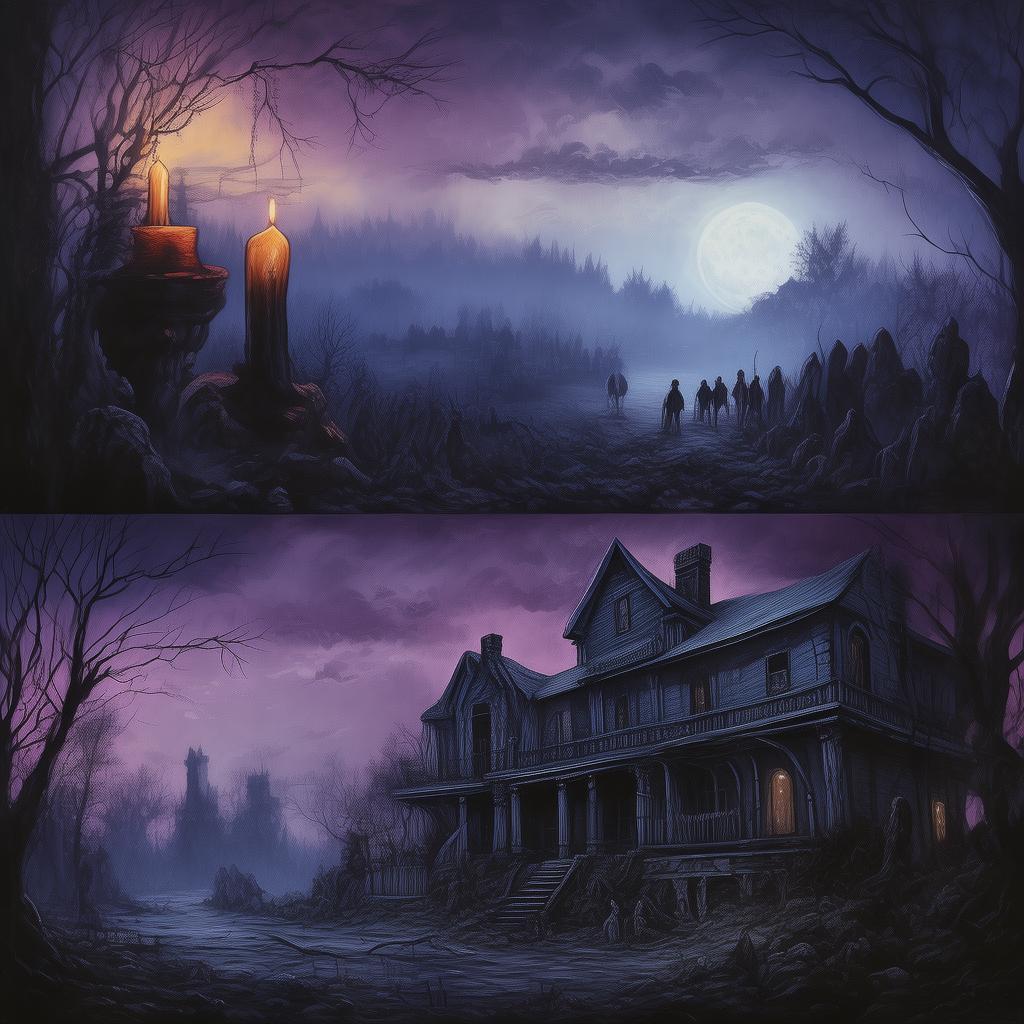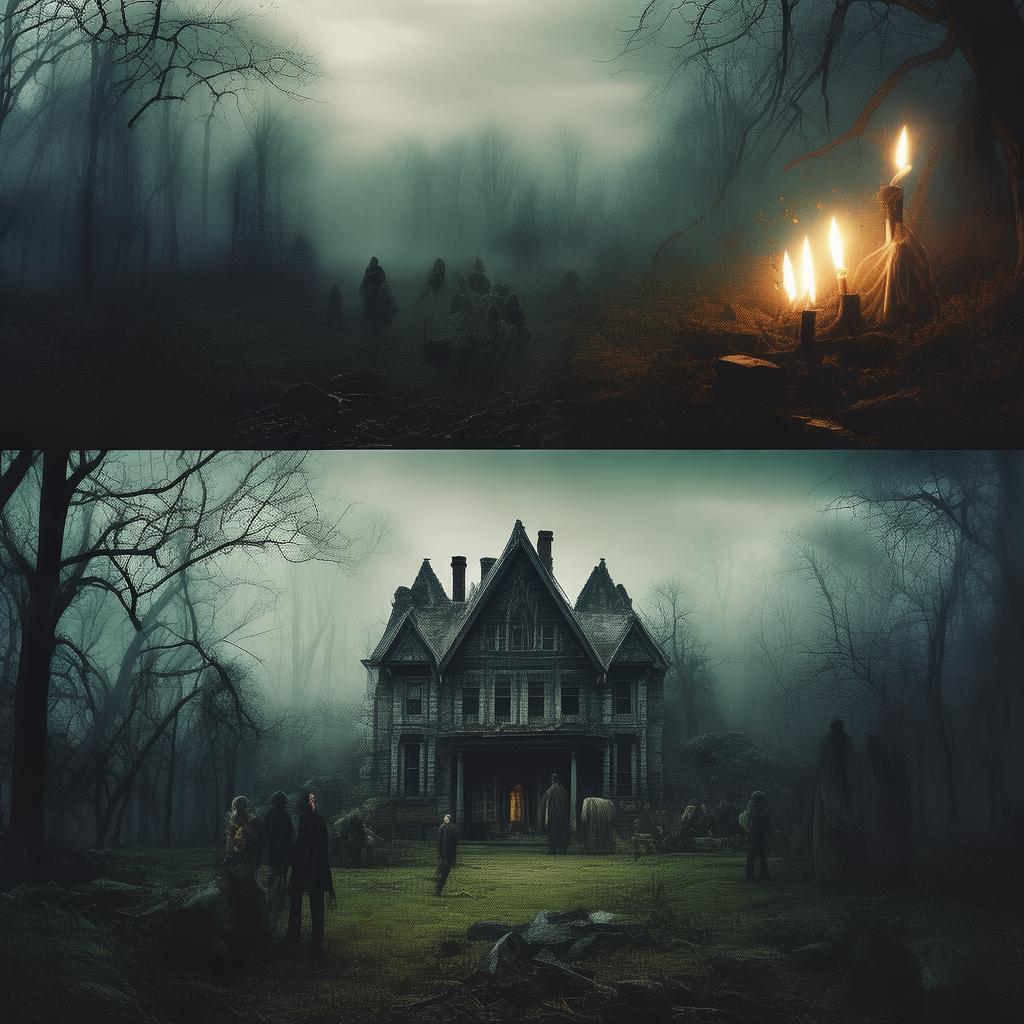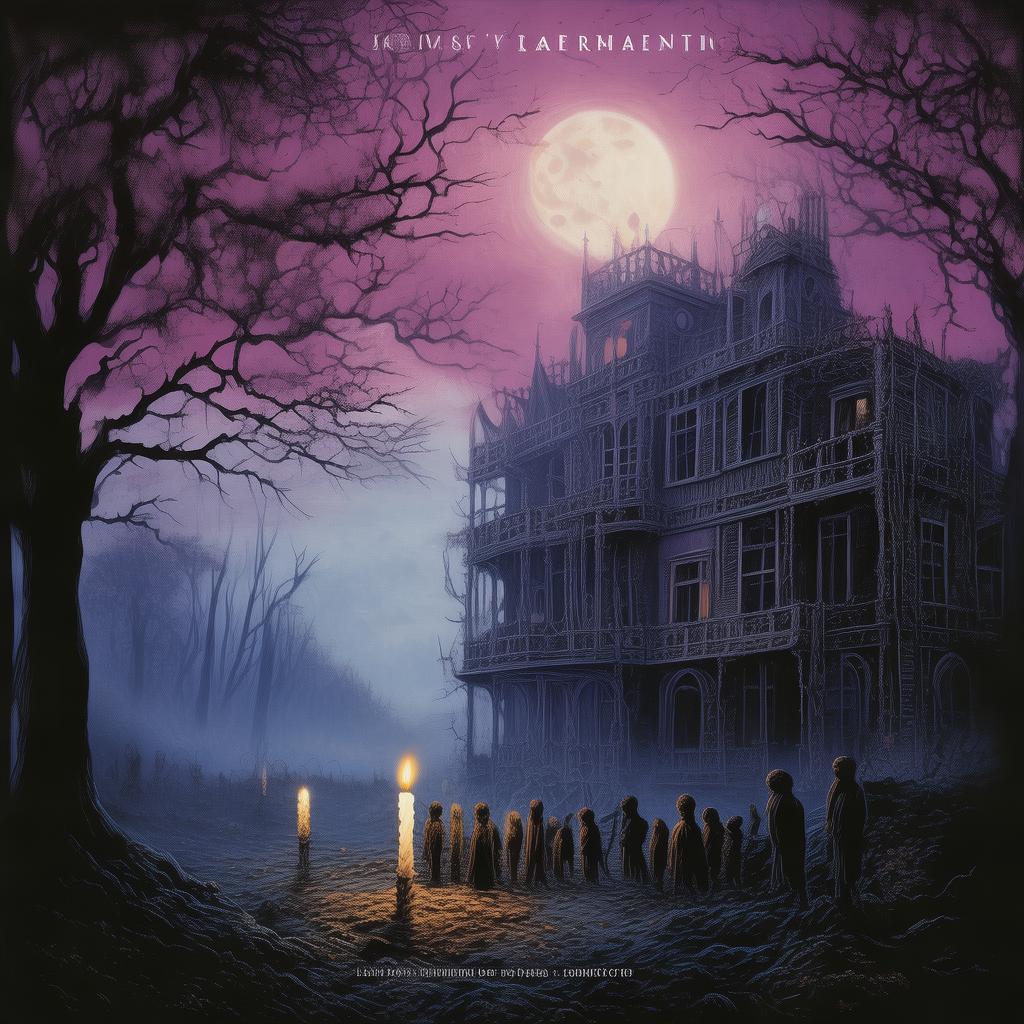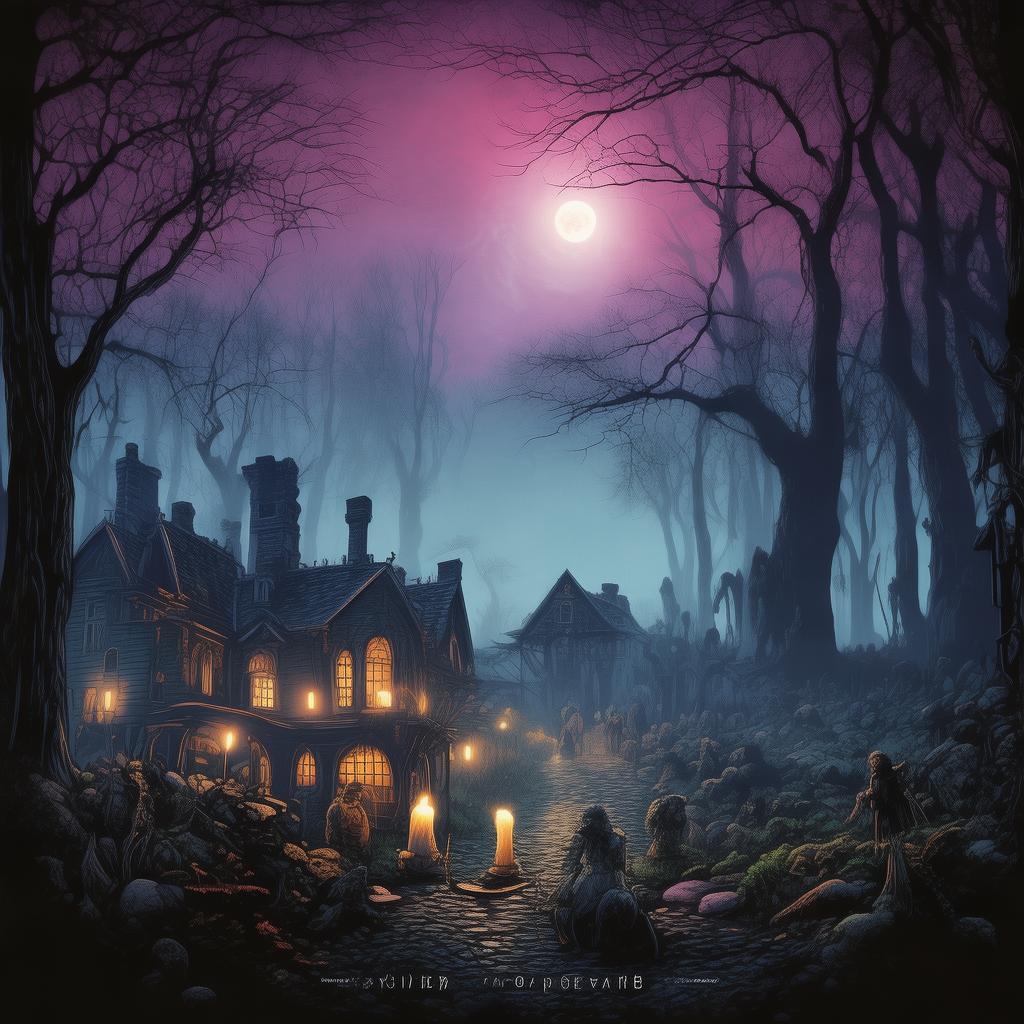The Haunting Whispers of the Abandoned Tea House
In the heart of Taiwan, nestled among the lush mountains and winding roads, there stood an old, abandoned tea house. Its once vibrant red lanterns now hung forlornly, their light dimmed by years of neglect. The wooden sign, weathered and cracked, read "Silent Whisper," a name that belied the secrets it held within.
The tea house had been a place of tranquility, a sanctuary for weary travelers seeking solace in the aromatic embrace of tea. But over time, it had become a place of dread, whispered about by locals and strangers alike. The stories were many, but none as chilling as the legend of the enslaved spirit.

Long ago, the tea house was owned by an elderly man named Master Li. He was a kind-hearted man, known for his generosity and his ability to heal the souls of those who sought refuge in his establishment. However, he had a secret—a spirit, bound and enslaved by an ancient curse, that had haunted him for decades.
The spirit, once a vibrant young woman named Mei, had been a frequent customer of the tea house. She was a beautiful and compassionate soul, but her life had been one of suffering. Master Li had fallen in love with her, but their love was forbidden by her family, who were wealthy landowners. In a fit of jealousy and rage, her family had cursed her, binding her spirit to the tea house and making her their eternal slave.
Mei’s spirit had been trapped in the tea house for years, her formless essence wandering the halls, watching over Master Li as he aged and became more frail. Her love for him never waned, but her pain grew with each passing day.
One stormy night, as the rain lashed against the old wooden walls, Mei’s spirit reached its breaking point. She had endured enough. She had watched as Master Li was taken from her, his life claimed by old age, and she was left with nothing but the curse that bound her.
With a heart full of sorrow and a spirit fueled by revenge, Mei decided to break the curse. She knew that she would have to confront her family, the ones who had caused her so much pain. She would have to fight them, and if necessary, she would sacrifice herself to end the curse once and for all.
As the first light of dawn broke through the storm clouds, Mei’s spirit emerged from the tea house, her formless essence now taking shape. She stood in the doorway, her eyes filled with tears of both sorrow and determination. She called out to her family, her voice echoing through the mountains.
Her family, hearing her call, rushed to the tea house. They had no idea what was about to unfold. As they entered the once peaceful establishment, they were greeted by the sight of Mei, her spirit now manifesting as a young woman, surrounded by the spectral remnants of her past.
The family, caught off guard, were initially terrified, but Mei addressed them with a calm that belied her pain. She explained her story, her eyes filled with the weight of her years of suffering. She demanded that they break the curse, or she would take her own life to end the cycle of pain.
The family, realizing the gravity of the situation, were forced to confront their own greed and jealousy. In a moment of redemption, they agreed to break the curse, and together, they worked to free Mei’s spirit.
As the curse was lifted, Mei’s spirit was freed, her love for Master Li finally finding peace. She bid him farewell, her spirit ascending into the heavens, leaving behind a legacy of love and forgiveness.
The tea house, now free of the curse, began to thrive once more. Master Li, who had witnessed the entire ordeal, passed away soon after, his life’s work now in the hands of the community. The tea house became a place of healing once more, a place where spirits could find solace and peace.
But the legend of the enslaved spirit lived on, a reminder of the power of love, forgiveness, and the enduring spirit of humanity. The tea house, now known as the "Silent Whisper," stood as a testament to the resilience of the human heart, a place where the past and the present intertwined, a place where love and redemption found their home.
In the years that followed, the tea house became a place of pilgrimage for those seeking to understand the power of love and the strength of the human spirit. They came to the tea house, seeking answers, and found solace in the stories of Master Li and Mei.
The legend of the enslaved spirit was a powerful one, a story that reminded all who heard it of the enduring nature of love and the eternal struggle between good and evil. And as the years passed, the tea house remained, a silent sentinel, a testament to the enduring legacy of the spirit of Mei, who had fought so hard for her freedom and the love she had once cherished.
✨ Original Statement ✨
All articles published on this website (including but not limited to text, images, videos, and other content) are original or authorized for reposting and are protected by relevant laws. Without the explicit written permission of this website, no individual or organization may copy, modify, repost, or use the content for commercial purposes.
If you need to quote or cooperate, please contact this site for authorization. We reserve the right to pursue legal responsibility for any unauthorized use.
Hereby declared.









